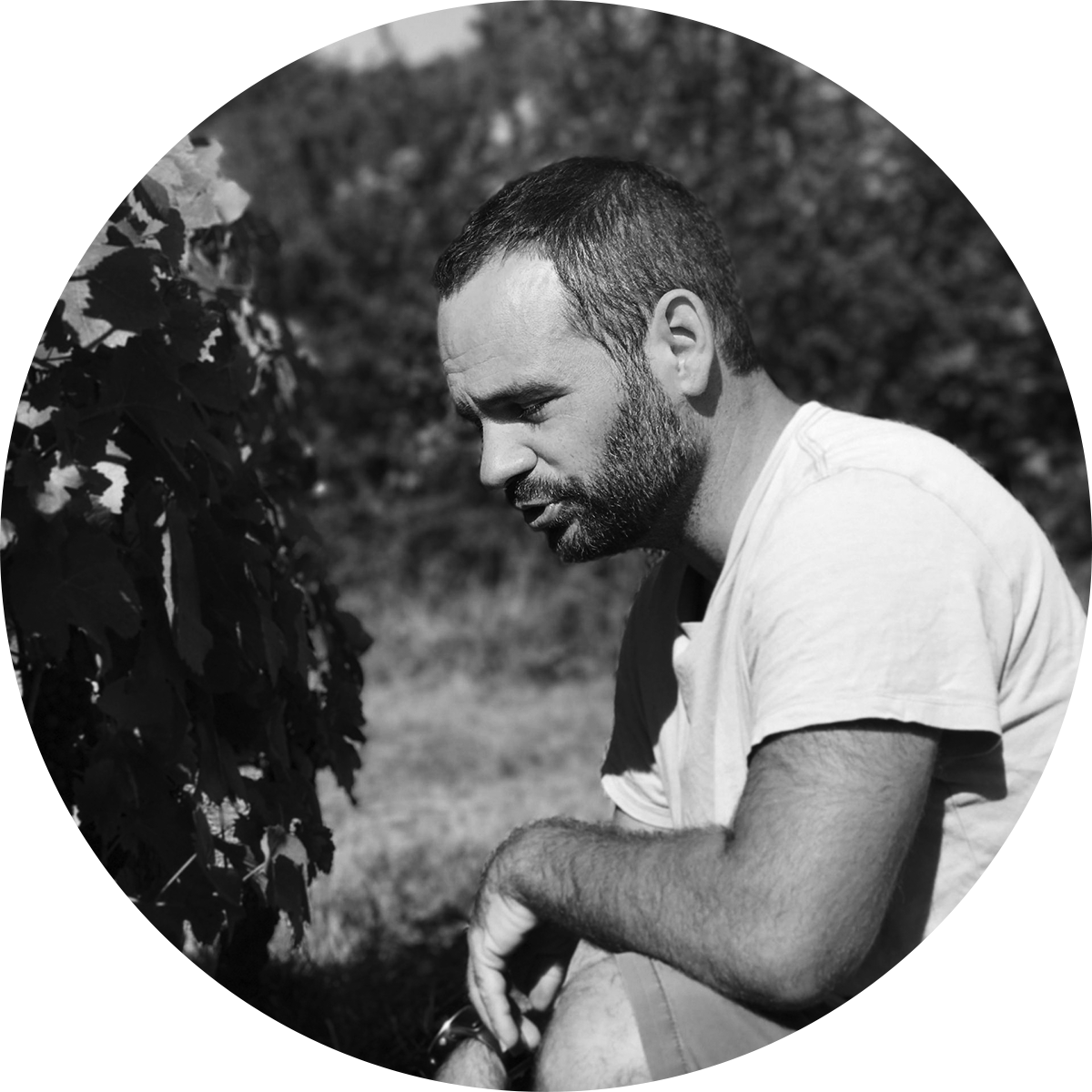RENAUD BOYER
RENAUD BOYER
Burgundy, France
Renaud Boyer settled in 2004 in a small wing of his family’s vast domain in Meursault, Burgundy.
Today, he manages his 3-hectare micro-estate, with vines divided between the clay heavy soils in Beaune, the stony limestone plot of Les Reuchaux in Puligny-Montrachet and chalky fossilised soils of Saint Romain. He inherited vines from his uncle Thierry Guyot, an organic enthusiast who had been working the vines free of chemicals since the 1980's. Renaud cultivates his plots by hand and horse, following natural principles without additives or sulphur. His wines have (naturally) been rejected by the labelling authorities, and therefore must be sold as Vin de France, though the names of the cuvées hint at their origins. And those very elegant, refined labels are designed by his Japanese wife.
-
Renaud Boyer Saint Romain Blanc 2021
Regular price HK$700.00Regular priceUnit price / per
BACKGROUND OF NATURAL WINE IN BURGUNDY
Revered for its exceptional Pinot Noir and Chardonnay, Burgundy stretches from Chablis in the north, to the Beaujolais region in the south. Its wines are terroir-driven that reflect the diverse soils and microclimates. The Côte d'Or, home to famous appellations such as Gevrey-Chambertin and Meursault, is particularly esteemed for producing some of Burgundy's most sought-after wines. With a history dating back centuries, Burgundy's winemaking tradition, meticulous vineyard management, and strict quality standards have cemented its reputation as a benchmark for excellence in the world of wine.
Organic, Biodynamic and Natural wine. What’s the difference?
To understand this concept and its various ramifications, it is necessary to keep something clear in mind: before the 20th century and the spreading of affordable synthetic fertilisers, all farming was organic. When the shift to the use of synthetics and pesticides happened, it became necessary to diversify traditional organic farming from the new modern farming.
ORGANIC WINE
Simply put, organic farming forbids the use of synthetic fertilisers, synthetic pesticides, herbicides, or genetically modified organisms. The basic requirements are generally specific and engage the farmers not to use any chemical fertilisers and other synthetic products in the vineyard. It does not prevent the vintner from using the conventional winemaking process after harvesting.
BIODYNAMIC WINE
Let’s take organic farming one step further: Biodynamic. The creator of this agricultural system is the Austrian philosopher Rudolf Steiner, who developed the principles of biodynamics in a series of lectures given in 1924 in Germany. Here lies the foundation of true organic wines, with a strict limit in the use of additives, stringent requirements and at the end obtaining a biodynamic certification.
NATURAL WINE
The previous definitions are usually, and rightfully, associated with it, because most natural wine is also organic and/or biodynamic. But not vice versa!
Natural wine is wine in its purest form, simply described as nothing added, nothing taken away, just grapes fermented. No manipulation whatsoever, minimal intervention both in the vineyards and in the winery. Healthy grapes, natural yeast and natural fermentation, with no filtration nor fining. Sounds easy, right? However, making natural wine is unforgiving and it requires a bigger amount of work than conventional wine. To this day, natural wine has no certification yet.




